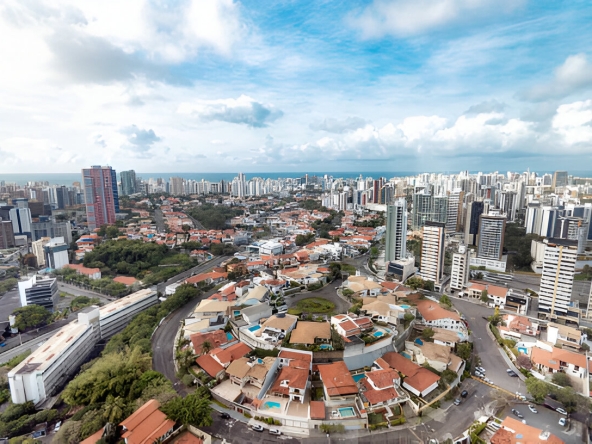Purchasing a vacation home is a dream for many—an opportunity to escape the daily grind, enjoy leisure time, and create lasting memories with family and friends. However, finding and buying the perfect vacation property requires careful planning and consideration. This guide provides essential tips to help you navigate the process of purchasing a vacation home and ensure that your investment aligns with your leisure goals.
1. Define Your Goals and Preferences

Purpose of the Vacation Home
- Personal Use: Determine if the property will be primarily for your personal enjoyment or if you plan to rent it out part-time when not in use. This will influence your choice of location and property features.
- Investment Potential: If you intend to rent out the property, consider its rental income potential and how it fits into your overall investment strategy.
Location Considerations
- Preferred Destinations: Identify your desired locations based on personal preferences, climate, and activities. Consider factors such as proximity to beaches, mountains, ski resorts, or urban areas.
- Accessibility: Ensure the location is easily accessible from your primary residence. Proximity to airports or major highways can make travel more convenient.
Property Features
- Size and Layout: Decide on the size of the property and the number of bedrooms and bathrooms needed. Think about whether you want additional features such as a pool, hot tub, or large outdoor spaces.
- Amenities: Consider the amenities that are important to you, such as a fully equipped kitchen, entertainment systems, or proximity to golf courses or hiking trails.
2. Research the Market

Local Real Estate Trends
- Property Values: Research property values in your desired location to understand current market conditions and trends. Look at recent sales data and market forecasts.
- Rental Market: If you plan to rent out the property, analyze the local rental market, including average rental rates and occupancy rates.
Local Regulations and Taxes
- Zoning Laws: Familiarize yourself with local zoning laws and regulations regarding vacation rentals. Some areas have restrictions on short-term rentals or specific requirements for property owners.
- Property Taxes: Investigate the property tax rates in the area and how they might impact your overall costs.
Neighborhood and Community
- Safety and Security: Assess the safety of the neighborhood by reviewing crime rates and local security measures. A safe and secure area enhances the enjoyment of your vacation home.
- Community Amenities: Explore local amenities such as grocery stores, restaurants, healthcare facilities, and recreational activities. Proximity to these services can enhance your overall experience.
3. Financing Your Vacation Home

Budgeting
- Affordability: Determine your budget, including the purchase price, closing costs, and ongoing expenses such as property taxes, insurance, and maintenance. Ensure that the property fits comfortably within your financial means.
- Additional Costs: Factor in additional costs such as property management fees, utilities, and potential HOA (Homeowners Association) fees if applicable.
Mortgage Options
- Loan Types: Explore different mortgage options, including second-home loans or investment property loans. Second-home loans typically have lower interest rates but may require a larger down payment.
- Down Payment: Be prepared for a higher down payment compared to a primary residence. Lenders often require 20% or more for vacation homes.
Tax Considerations
- Deductions and Benefits: Consult with a tax advisor to understand potential tax benefits or deductions for vacation homes, including mortgage interest and property tax deductions.
4. Finding the Right Property

Work with a Real Estate Agent
- Specialized Expertise: Engage a real estate agent who specializes in vacation properties and is familiar with the local market. They can provide valuable insights and help you find properties that meet your criteria.
- Property Tours: Schedule property tours to get a firsthand look at potential homes. Pay attention to the condition of the property, its surroundings, and any potential issues.
Property Inspections
- Professional Inspection: Hire a professional inspector to assess the property’s condition. This includes checking for structural issues, plumbing, electrical systems, and any necessary repairs.
- Environmental Factors: Consider any environmental factors that may affect the property, such as flooding risks, erosion, or pest issues.
5. Making an Offer and Closing the Deal
Offer and Negotiation
- Market Value: Make an offer based on the property’s market value and your budget. Your real estate agent can help you determine a fair offer and negotiate with the seller.
- Contingencies: Include contingencies in your offer, such as financing and inspection contingencies, to protect yourself in case of unforeseen issues.
Closing Process
- Review Documents: Carefully review all closing documents and agreements. Ensure that all terms and conditions are clearly outlined and that you understand your obligations.
- Final Walk-Through: Conduct a final walk-through of the property to verify that it is in the agreed-upon condition before closing.
6. Managing Your Vacation Home
Property Management
- Self-Management vs. Professional Services: Decide whether you will manage the property yourself or hire a professional property management company. A property management company can handle bookings, maintenance, and guest relations.
- Maintenance Plan: Implement a regular maintenance plan to keep the property in good condition. Schedule routine checks and address any repairs promptly.
Enjoying Your Investment
- Personal Use: Make the most of your vacation home by creating a schedule for personal use and planning enjoyable activities during your stays.
- Renting Out: If renting out the property, ensure it is well-prepared for guests and maintain high standards for cleanliness and hospitality.
7. Long-Term Considerations
Future Resale Value
- Market Trends: Monitor market trends and property values to understand how the value of your vacation home may change over time. This information can be useful if you decide to sell in the future.
Financial Planning
- Ongoing Costs: Continuously evaluate the ongoing costs of owning a vacation home and ensure that it aligns with your financial goals. Budget for maintenance, taxes, and other expenses.
Personal Enjoyment
- Creating Memories: Remember that a vacation home is not just an investment but a place to create lasting memories and enjoy quality time with loved ones. Prioritize your personal enjoyment and the experiences it brings.
Buying a vacation home is an exciting venture that offers both financial and personal rewards. By defining your goals, researching the market, and carefully managing the purchase process, you can find a property that meets your needs and enhances your leisure time. Whether you’re seeking a serene retreat, an adventure-filled getaway, or a profitable rental investment, this guide provides the essential steps to help you achieve your dream vacation home.











